パーク・システムズ #14 高分子ナノ材料研究とAFM
Empowering your time: Conduct a full experiment remotely from your couch or elsewhere!
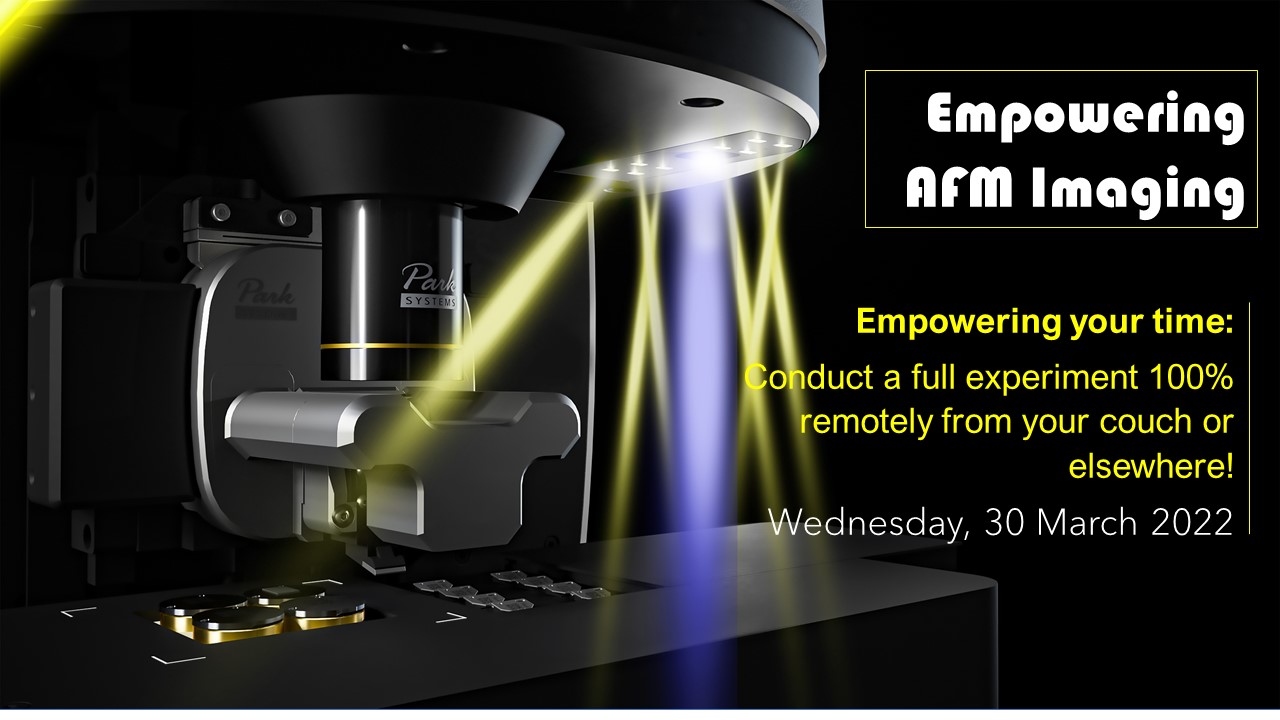
Empowering your time: Conduct a full experiment remotely from your couch or elsewhere!
Wednesday, 30 March 2022
- 10:00 am – 11:00 am
(GMT)
London, Dublin - 11:00 am – 12:00 pm
(CET)
Berlin, Paris, Rome - 19:00 pm – 20:00 pm
(UTC+9)
Seoul, Tokyo

Check out all webinars from the Empowering AFM Imaging series here.
Atomic force microscopy is a powerful analytical technique for characterizing materials as it provides profound insight into the innate material properties. The lately introduced Park FX40 Automatic AFM has now made it possible for anyone to perform those measurements with ease. Through its unique automation and machine learning, Park FX40 can change samples and probes with just one click. This makes the tool suitable for remote handling from anywhere in the world through internet.
In this webinar series, we have shown the various automation features of Park FX40 Automatic AFM coupled with the advanced AFM modes. In the final demonstration of this series, we will be conducting an experiment with multiple samples and probes completely remotely from Germany on the FX40 tool based in Park Systems office in United Kingdom. This session will ascertain the 100% remote capabilities of the FX40 instruments. We will show you how to plan your experiments and research more efficiently, which gives you the freedom and flexibility of working from anywhere in the world and have high quality quantitative data.
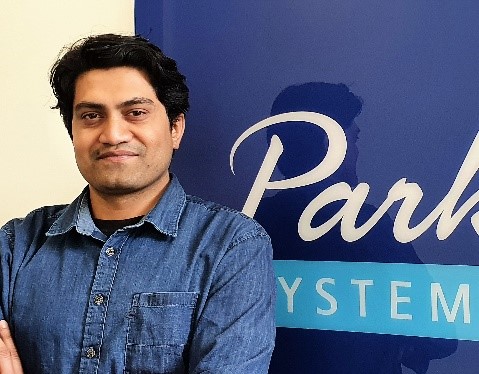
Presenter:
Abdul Rauf, Application Scientist at Park Systems Europe
Abdul is an Application Scientist at Park Systems Europe, where he supports development of AFM solutions for customers. He had his training as a polymer materials’ engineer with emphasis on elastomer blends and composites. Abdul has expertise in characterization of macromolecular systems at interfaces. He worked on his doctoral thesis in the group of Prof. Jürgen P. Rabe in Humboldt-Universität zu Berlin, where he acquired expertise in morphological and nanomechanical characterization of thin films confined in interfaces. His work in Berlin also included study of two-dimensional materials such as monolayers of Graphene, Hexagonal Boron Nitride, and Transition Metal Dichalcogenides as sensors for strain transfer across atomic interfaces.
Empowering advanced imaging: how AFM Automation helps in nanomechanical PinPoint investigation at nanoscale
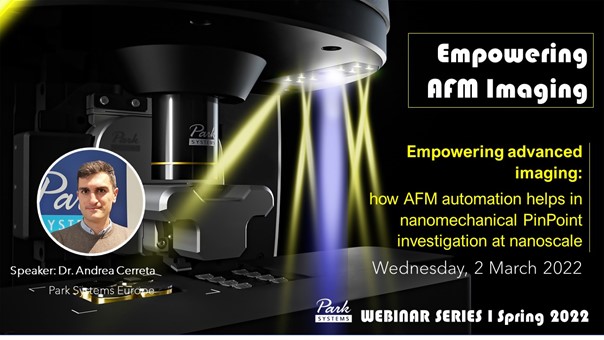
Empowering advanced imaging: how AFM Automation helps in nanomechanical PinPoint investigation at nanoscale
Wednesday, 2 March 2022
- 10:00 am – 11:00 am
(GMT)
London, Dublin - 11:00 am – 12:00 pm
(CET)
Berlin, Paris, Rome - 19:00 pm – 20:00 pm
(UTC+9)
Seoul, Tokyo

Check out all webinars from the Empowering AFM Imaging series here.
Scanning probe-based mechanical measurements allow retrieving nanoscale properties of a wide range of both elastically and inelastically deformable samples. Such a methodology can be applied to study the composition and mechanical behaviour of polymeric blends, soft tissues, or fibers, and performing hardness tests on stiff materials.
Park Systems PinPoint™ is a scanning mode that allows recording topography maps of the sample surface and extracting quantitative nanomechanical data at the same time. In PinPoint mode, fast forward/backward force cycles at ever pixel of the sample are recorded and analysed in real time in order to provide simultaneous maps of the tip adhesion, sample deformation, stiffness and Young’s modulus. The full data volume is also recorded.
The new Park Systems FX40 AFM improves the application of PinPoint and all Park advanced modes by combining it with automatic tip exchange and alignment. In this webinar, we will explore these features, seeing how users can test levers with different properties (e.g. spring constant or apex radius) on the same sample in order to optimize the selection of the correct probe.
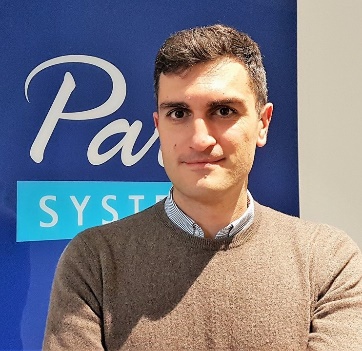
Presenter:
Dr. Andrea Cerreta, Application Scientist Park Systems Europe, Mannheim, Germany
acerreta@parksystems.com
Dr. Andrea Cerreta is an Application Scientists at Park Systems Europe, where he focuses on application development and support for the academic sector. He received his Ph.D. in Physics from the Ecole Polytechnique Fédérale de Lausanne (EPFL), Switzerland. He did his further doctoral work at the Solid State Physics Group of Université de Fribourg, Switzerland, which focused on studying electrical and magnetic properties of organic spin valves and spin polarized currents in superconducting materials, grown by means of Pulsed Laser Deposition, and characterizing the DC and AC transport properties of magnetic and superconducting samples. His expertise also spans the Frequency Modulation Atomic Force Microscopy in UHV for the study of biomolecules.
Introduction to Park FX40: The automatic AFM
Thursday, 24 Feb, 2022
- 12:00 pm
(ARAB)
Riyadh - 2:30 pm
(IST)
New Delhi - 5:00 pm
(SST)
Singapore - 8:00 pm
(AEDT)
Sydney
Atomic Force Microscope (AFM) measure the surface topography and other physical properties of the samples with sub-nanometer resolution giving three dimensional images. AFMs therefore have become an indispensable tool in industrial and research applications. The conventional AFM users may take long time to setup an experiment as it includes several steps to be performed before the user gets insightful data. So, the AFM seems to have complex operations and handling as seeing by an unexperienced user which pose an important question: “Is AFM easy to use?”.
In this webinar and system demonstration, we would like to answer the above question affirmatively by introducing Park FX 40: The automatic AFM which infuses artificial intelligence and machine learning for auto probe identification, auto probe exchange, auto beam alignment, automatic tip approach and sample navigation controlled using the SmartScan software which eases the use of AFM for busy researchers who need highest resolution images and nanoscale measurements.
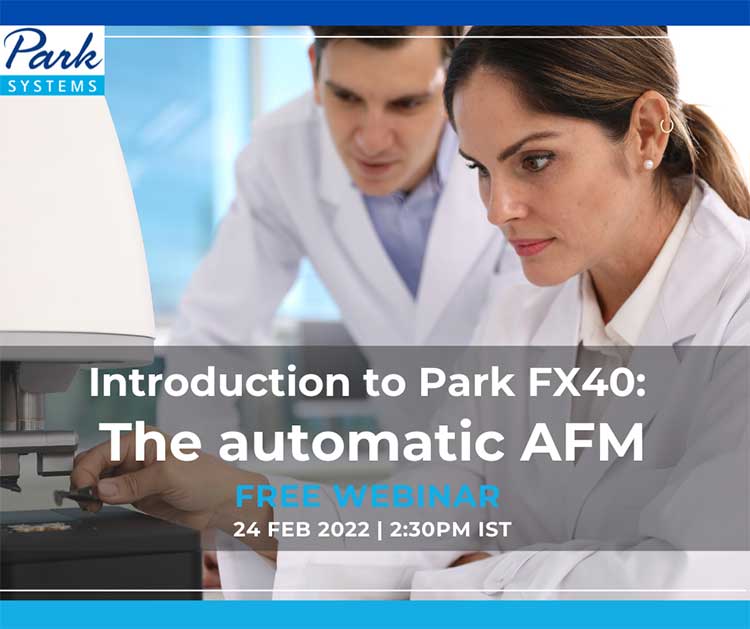
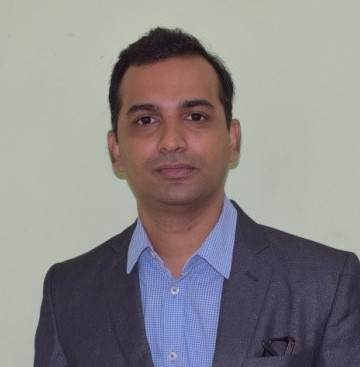
Presented By :
Dr. Ashutosh Valavade
Application Scientist, Park Systems India
Dr. Ashutosh Valavade is an Application Scientist for Park Systems India and has a high level of experience in handling materials science & biological Atomic Force Microscopes (AFM). He has completed his doctorate from University of Mumbai.
Introduction to the principle of an AFM
Monday, 31 Jan 2022
-
12:00 pm
(ARAB)
Riyadh -
2:30 pm
(IST)
New Delhi -
5:00 pm
(SST)
Singapore -
8:00 pm
(AEDT)
Sydney
Atomic Force Microscope (AFM) is a technique which belongs to the
Scanning Probe Microscopy (SPM) family. It visualizes and generates
images by ‘feeling’ the surface of the sample. The main operation
modes of AFM depend on the force range due to the tip-sample
separation distance. The AFM operates basically in three modes i.e.
contact mode, intermittent contact or tapping mode and non-contact
mode. In contact mode of operation of AFM the cantilever is in contact
with the sample surface. The interaction between the cantilever and
the sample surface is in the repulsive regime. In non-contact mode the
tip does not come in contact with the surface of the sample and the
tip – sample distance is generally of the order of few tens of
nanometers and the tip experiences long range attractive forces.
Therefore, tip and sample can be preserved. Tapping mode (i.e.,
intermittent contact mode) shares similar principle with non-contact
mode. AFMs have been widely used in various applications of diverse
fields ranging from surface sciences, biology, chemistry and so on.
The target of this session is to understand the interaction between
the tip and the specimen surface while mapping sample surface.
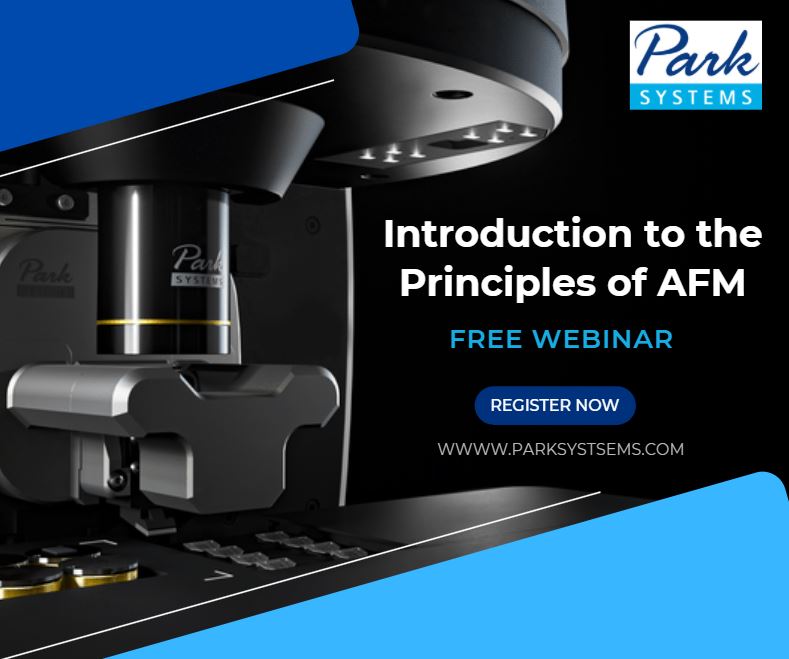

Presented By :
Dr. Ashutosh Valavade
Application Scientist, Park Systems
India
Dr. Ashutosh Valavade is an Application Scientist for Park Systems India and has a high level of experience in handling materials science & biological Atomic Force Microscopes (AFM). He has completed his doctorate from University of Mumbai.


